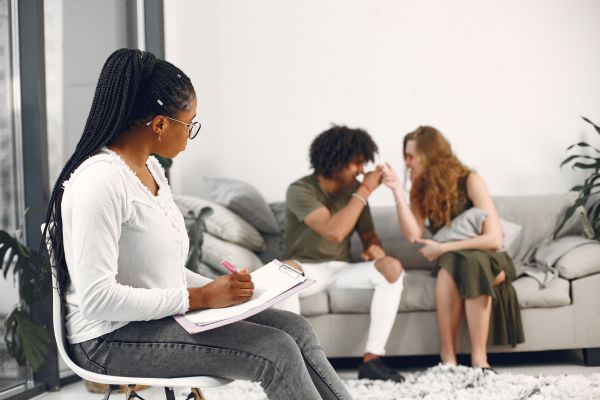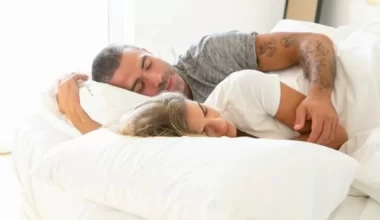Are you passionate about helping couples navigate challenges, improve their relationships, and find greater happiness? If so, a career as a couples counsellor might be the perfect path for you.
As a couples counsellor, you have the opportunity to make a profound impact on the lives of individuals, guiding them through difficult times and empowering them to build stronger, more fulfilling partnerships.
In this article, we will explore the essential steps and qualifications required to How To Become A Couples Counsellor. Get ready to embark on a rewarding and transformative career where you can make a difference in the realm of love and relationships.
How To Become A Couples Counsellor
Becoming a couples counsellor is a rewarding career path that allows you to make a positive impact on relationships and help couples navigate challenges. By providing guidance, support, and therapeutic interventions, couples counsellors play a crucial role in strengthening and repairing relationships.
If you’re interested in pursuing a career as a couples counsellor, this article will guide you through the essential steps required to embark on this fulfilling journey.
Step 1: Earn a Bachelor’s Degree
The first step towards becoming a couples counsellor is obtaining a bachelor’s degree in a relevant field. While there is no specific undergraduate major required, it is advisable to choose a programme in psychology, counselling, or a related discipline.
A bachelor’s degree provides a solid foundation for understanding human behaviour, interpersonal dynamics, and the fundamentals of counselling. It equips you with the necessary knowledge to proceed with graduate studies in the field of couples counselling.
Step 2: Earn a Master’s Degree
To become a licenced couples counsellor, a master’s degree in marriage and family therapy or a related mental health field is typically required. Pursuing a master’s programme in marriage and family therapy provides specialised training specifically geared towards working with couples and families.
The coursework includes subjects like couples therapy theories, family systems, conflict resolution, and ethical practises. Additionally, most programmes require students to complete supervised clinical internships to gain hands-on experience working with couples under the guidance of licenced professionals.
Step 3: Complete Additional Clinical Experience
Alongside obtaining a master’s degree, it is vital to accumulate additional clinical experience. Many graduate programmes include practicums and internships as part of their curriculum. These opportunities allow you to apply theoretical knowledge in a real-world setting, sharpen your counselling skills, and gain practical experience in couples therapy.
The supervised clinical experience provides invaluable insights into the dynamics of relationships and enhances your ability to effectively intervene and facilitate positive change.
Step 4: Pass the Required Licencing Exams
Licencing requirements for couples counsellors vary depending on the jurisdiction, but most states or countries require candidates to pass specific licencing exams. These exams assess your knowledge of counselling theories, ethics, and clinical practises.
The most common exam for couples counsellors is the National Marriage and Family Therapy Examination. It is crucial to thoroughly prepare for the exam by studying relevant materials, attending exam prep courses, and utilising practice resources to increase your chances of success.
Step 5: Apply for Licensure
After completing the necessary educational requirements and passing the licencing exams, the next step is to apply for licensure as a couples counsellor. Each jurisdiction has its own licencing board or regulatory body responsible for issuing licences.
The application process typically involves submitting documentation of your education, clinical experience, and exam results. It is important to carefully follow the application guidelines and provide all the required information to ensure a smooth and successful licensure process.
Step 6: Complete Continuing Education
Becoming a couples counsellor is not the end of the learning journey; it marks the beginning. As with any field in mental health, ongoing professional development and continuing education are essential.
Engaging in continuing education workshops, seminars, conferences, and advanced training programmes allows you to stay abreast of the latest research, therapeutic techniques, and ethical considerations in couples counselling. Continuous learning ensures that you provide the best possible support to your clients and maintain your licensure requirements.
Conclusion
Becoming a couples counsellor requires dedication, passion, and a genuine desire to help couples overcome challenges and build healthy relationships.
By following the outlined steps of earning a bachelor’s degree, pursuing a master’s degree, gaining clinical experience, passing licensing exams, applying for licensure, and engaging in continuing education, you can embark on a fulfilling career as a couples counsellor.
Remember, empathy, active listening, effective communication, and a non-judgmental approach are crucial skills for success in this field. As a couples counsellor, you have the opportunity to make a lasting impact on the lives of couples, fostering healthier and more fulfilling relationships.
FAQs on How to Become a Couples Counsellor:
Can I become a couples counsellor with just a bachelor’s degree?
While a bachelor’s degree is an important foundation, a master’s degree is typically required to become a licenced couples counsellor. The master’s degree provides specialised training in couples therapy and prepares you for clinical practice.
What skills are necessary to excel as a couples counsellor?
Effective communication, active listening, empathy, and problem-solving skills are crucial for success in this field. Additionally, having a non-judgmental and compassionate approach is essential when working with couples.
How long does it take to become a licenced couples counsellor?
The timeline for becoming a licenced couples counsellor can vary. It typically takes around 6–8 years to complete the necessary education, clinical experience, and licensure requirements. This includes earning a bachelor’s degree, obtaining a master’s degree, completing clinical hours, passing licencing exams, and applying for licensure.
Are there specialised certifications or training programmes available for couples counselling?
Yes, there are various certification programmes and additional training options that can enhance expertise in couples counselling. These programs often focus on specific approaches or populations, allowing counsellors to expand their knowledge and skills in specialised areas.
What career opportunities are available for couples counsellors?
Couples counselors can work in private practise, counselling centres, hospitals, educational institutions, or community organizations. Additionally, couples counsellors may pursue research or teaching positions in the field. The demand for couples counsellors is increasing as more people recognise the importance of seeking professional help to improve their relationships.








